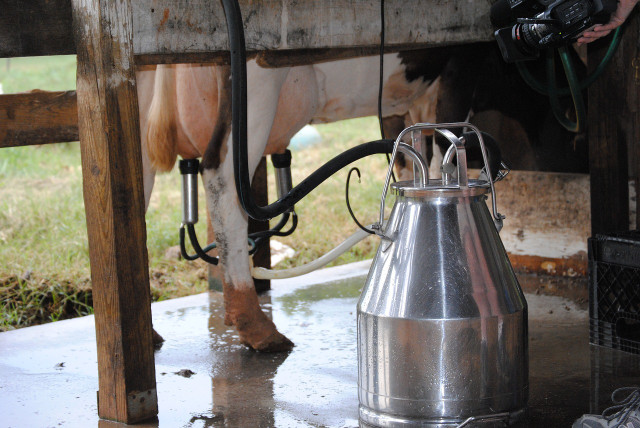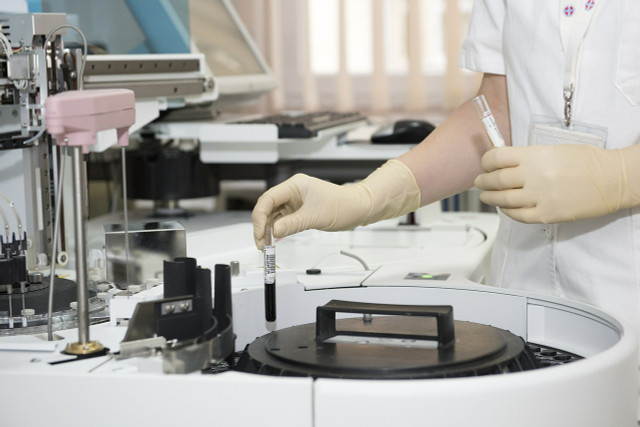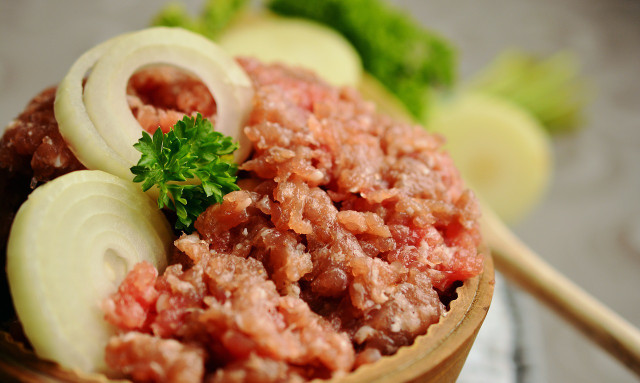
Listeria are bacteria that can cause serious gastrointestinal infections. They are particularly common in raw meat and other animal products. But there are simple ways to protect yourself.
Listeria is a series of bacteria that are widespread in our environment and can therefore also get into food production plants. Listeria monocytogenes is the main focus of attention as a pathogen because this species can cause dangerous infectious diseases.
According to the Bavarian Ministry of Consumer Protection, listeria are found “almost everywhere” in the environment – also frequently in humans. Up to ten percent of people carry listeria in their intestines. The same applies to many animal species. However, listeria only lead to the outbreak of diseases when the immune system is already very weak. Therefore, there are special risk groups for which Listeria can be dangerous. According to the Robert Koch Institute, there are several hundred cases a year; the exact numbers vary. About seven percent of infections are fatal.
Listeria: Commonly Affected Foods

(Photo: CC0 / Pixabay / teachingfarmer)
Listeria are found in the environment on the one hand and in the faeces of infected animals on the other. Food can come into contact with Listeria via these two routes. However, you can still eat contaminated food as long as you kill the bacteria first.
- Listeria are extremely resilient. According to the consumer center, they even survive sub-zero temperatures. It is therefore not enough to freeze food to kill the bacteria.
- According to the Federal Institute for Risk Assessment (BfR), Listeria can even multiply in vacuum packaging.
- The bacteria can only be safely killed by boiling, roasting, sterilizing and pasteurizing. This is also why dairies heat (pasteurize) the milk before selling it.
Listeria is particularly common in raw products of animal origin, but also in plant foods. For example in:
- raw milk cheese
- heat-treated products made from fish or poultry meat
- raw minced meat / mett
- Raw sausage types (e.g. Mettwurst, Teewurst)
- Sheep and goat cheese
- smoked fish
- pre-cut, packaged salads
- deli salads
- Ready meals that are eaten without further heating
- fresh sprouts and seedlings
There are Listeria limit values for some foods. However, the BfR warns that these are repeatedly exceeded.
Listeria infection: risk of listeriosis

(Photo: CC0 / Pixabay / DarkoStojanovic)
According to the Bavarian Ministry of Consumer Protection, listeria is generally harmless and unobtrusive for people with a healthy immune system. Infection (called listeriosis) rarely occurs. When listeriosis occurs, it is in the form of flu-like symptoms. These include fever, muscle pain, vomiting and diarrhea.
According to the Pharmazeutische Zeitung, listeriosis can be life-threatening in certain risk groups. These risk groups include:
- Pregnant women (risk of stillbirth, premature birth and meningitis)
- infants and young children
- elderly people
- People with a weakened immune system (e.g. due to HIV infection)
For example, the BfR advises against giving small children raw ground pork to eat. Your immune system may still be too weak to withstand the Listeria it contains.
To diagnose listeriosis, doctors try to detect listeria in the blood. They do not normally occur there in healthy people. Treatment then takes three to six weeks with high-dose antibiotics.
This is how you can protect yourself from Listeria

(Photo: CC0 / Pixabay / congerdesign)
You can encounter Listeria in many places in everyday life. You can protect yourself from the particularly common sources of infection as follows:
- Animal foods, especially vacuum-packed foods, should be consumed as soon as possible after purchase. Of course, you would be safer if you at least avoided sausages altogether. There are even more reasons for this: 5 common arguments to eat meat – NOT
- The Robert Koch Institute also advises risk groups to avoid raw meat, raw milk cheese, raw and smoked fish and bagged salad.
- You should cook meat and fish well to kill Listeria.
- It is best to cover cooked food in the refrigerator well. This reduces the risk of them being contaminated afterwards.
Read more at Utopia:
- Legionella: This is what you need to know about the bacteria in drinking water
- Humidifier test – Öko-Test warns of bacteria spin
- Multi-resistant germs: What you should know about antibiotic resistance